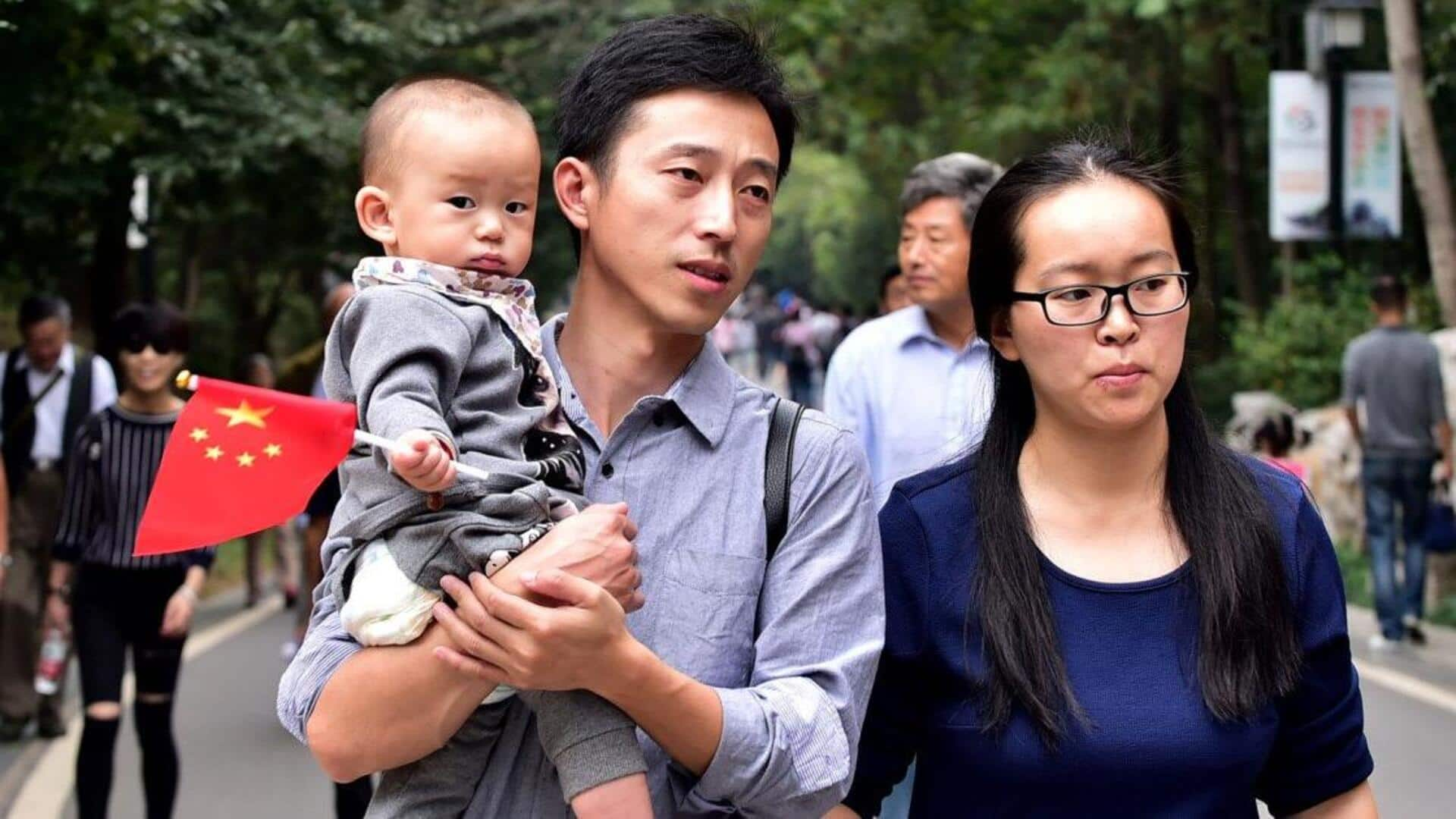
China launches survey to understand 'fear of having children'
What's the story
China's National Health Commission (NHC) has launched a nationwide survey to gauge public understanding toward childbearing and fears about having children. The survey will involve 30,000 participants from 150 counties and 1,500 communities across the country. This comes as part of China's response to its declining birthrate, after the second consecutive year of population decline in 2023.
Survey objectives
Survey aims to address 'reluctance and fear' of childbirth
The survey aims to study the "reluctance and fear surrounding having children" and formulate fertility support measures and incentives, the Global Times reported. The China Population and Development Research Center under the NHC is conducting the survey. The last nationwide family and fertility survey was conducted in 2021. Chinese health officials are also promoting marriage and childbirth at "appropriate ages" and shared parenting responsibilities. These efforts are aimed at steering young people toward "positive perspectives on marriage, childbirth, and family."
Upcoming survey
Nationwide survey to monitor population changes planned
In addition, the National Bureau of Statistics has announced plans for another nationwide sample survey from October 10 to November 30. China's birthrate has been falling since the late 1980s, when it implemented a stringent one-child policy to regulate its fast rising population. But in 2023, the total population declined for the second consecutive year. It remained the world's most populated country until India took the position in April 2023.
Steps
Increasing birth rates a national goal: Chinese president
To stem the population drop, China abolished the one-child policy in 2015 and provided financial incentives, such as tax rebates, to couples who had at least two children. In October 2022, President Xi Jinping proclaimed that increasing birth rates was a national goal. Xi told the Communist Party National Congress that his government would "pursue a proactive national strategy" in response to the country's aging population.